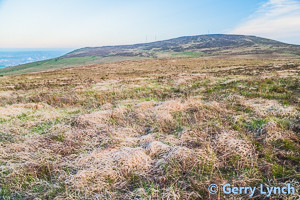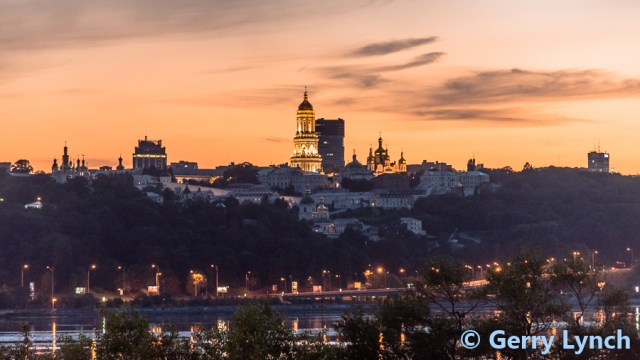Went for a walk to Avebury on my day off today. A journey of Roman roads, hillside copses, ancient megaliths, giant puddles, and even half a mile walking on a practice track for racehorses. I took the risk of setting off in heavy rain again, but the forecast was for it to clear and it did within the first hour; after a genuinely bad squall on top of the ridge by the White Horse, there wasn’t so much as a drop, despite only dappled bursts of sunshine and a stiff breeze. Some change in the tree colour is now visible.
A total of 10½ miles/17 km via the Devizes White Horse and Morgan’s Hill – neither of which ascents were as strenuous as the several miles on the Roman road west of Avebury, which has 50 cm deep landrover tracks for its entire length. Even worse, today large parts of it resembled the Para-Elemental Plane of Ooze (I’ll assume you’re all familiar with the Advanced Dungeons and Dragons™ 1st Edition™ Manual of the Planes™).
All concluded with a good pub lunch in the Red Lion. I felt I’d walked hard enough to earn an aperitif, and asked the waitress if they had any Madeira. She indicated that they did. Did they have more than one type, I asked? She said the only “La Bira” they had was Peroni. Neither did they have any sherry other than Bristol Cream – “which usually only comes out at Christmas” – so I had to make do with a whiskey and soda. A bit naughty at lunchtime but I felt I’d burned enough extra calories negotiating muddy landrover ruts to justify it to myself.
On the 49 bus home, at 3.30 on a Thursday afternoon, I made it five people on board; a sixth got off just as I boarded, while another two joined at Bishops Cannings. This is the Swindon to Trowbridge via Devizes route, which should be one of the busiest in this part of Wiltshire. I really fear for the viability of our public transport, especially our bus companies, which are a Cinderella at the best of times.
Photos taken with the Samsung A11 cameraphone and edited in Lightroom 6 – the difference with a real camera does show, I’m afraid. Where the cameraphone struggles most, inevitably, is with dark subjects against bright backgrounds. Still, I think these are enough to get the atmosphere of the day and share on social media with friends.


















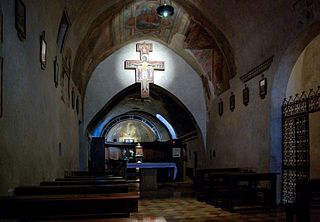
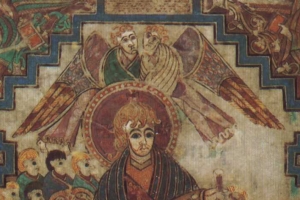

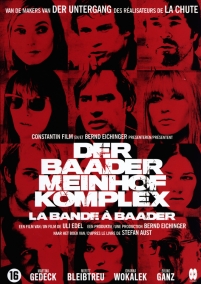 Last week I watched two films that depicted how people convinced they are fighting injustice can descend into barbarism precisely because of their moral certainty. Both looked back on events in the late 1960s and 1970s. The first was Sam Green and Bill Siegel’s insightful documentary on The Weather Underground, the second was Bernd Eichlinger’s emotionally overwhelming dramatization of the story of The Baader Meinhof Complex. On both sides of the Atlantic, young people outraged by the nightly television scenes from Vietnam, with America killing civilians in great numbers, themselves resorted to bombing and killing. None of this produced any of the justice and liberation they sought. In the end, both organisations found the world moved on rapidly and left those in them behind: on the run, or marooned on the edge of society, or imprisoned. The illusion that if only we ourselves ran the world, then everything would be wonderful, is a dangerous one.
Last week I watched two films that depicted how people convinced they are fighting injustice can descend into barbarism precisely because of their moral certainty. Both looked back on events in the late 1960s and 1970s. The first was Sam Green and Bill Siegel’s insightful documentary on The Weather Underground, the second was Bernd Eichlinger’s emotionally overwhelming dramatization of the story of The Baader Meinhof Complex. On both sides of the Atlantic, young people outraged by the nightly television scenes from Vietnam, with America killing civilians in great numbers, themselves resorted to bombing and killing. None of this produced any of the justice and liberation they sought. In the end, both organisations found the world moved on rapidly and left those in them behind: on the run, or marooned on the edge of society, or imprisoned. The illusion that if only we ourselves ran the world, then everything would be wonderful, is a dangerous one.